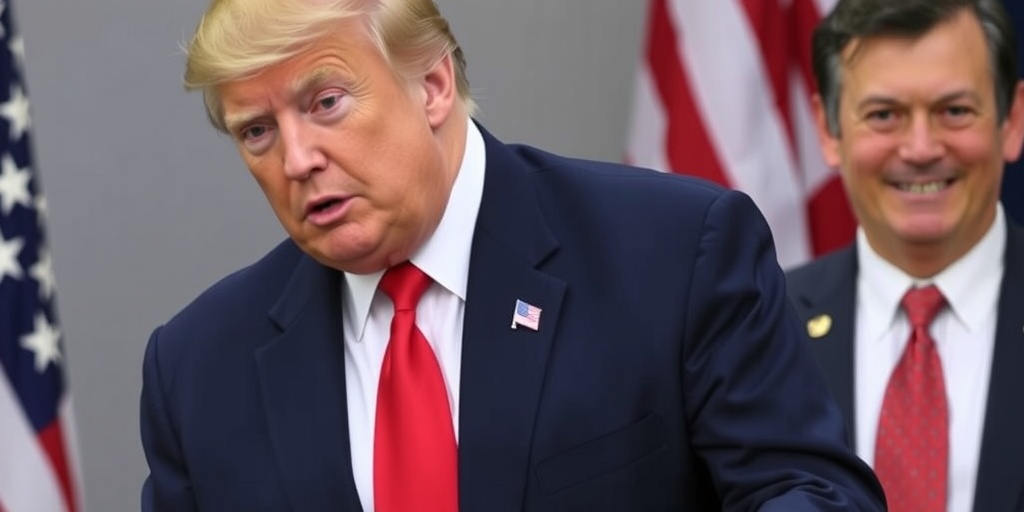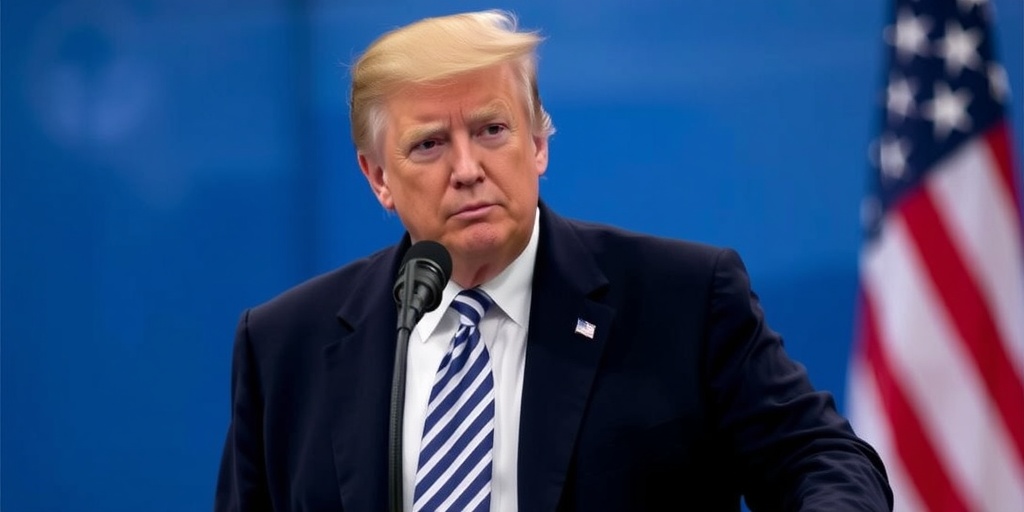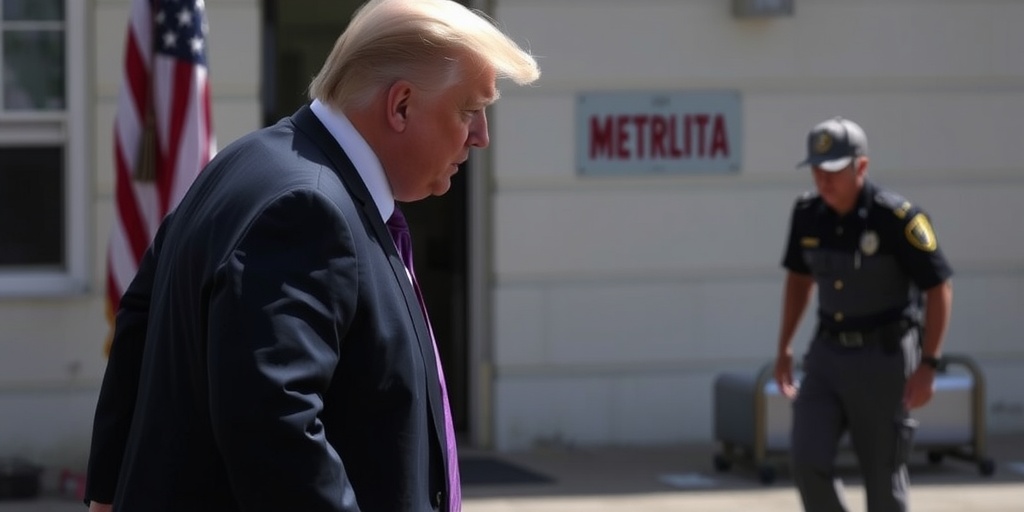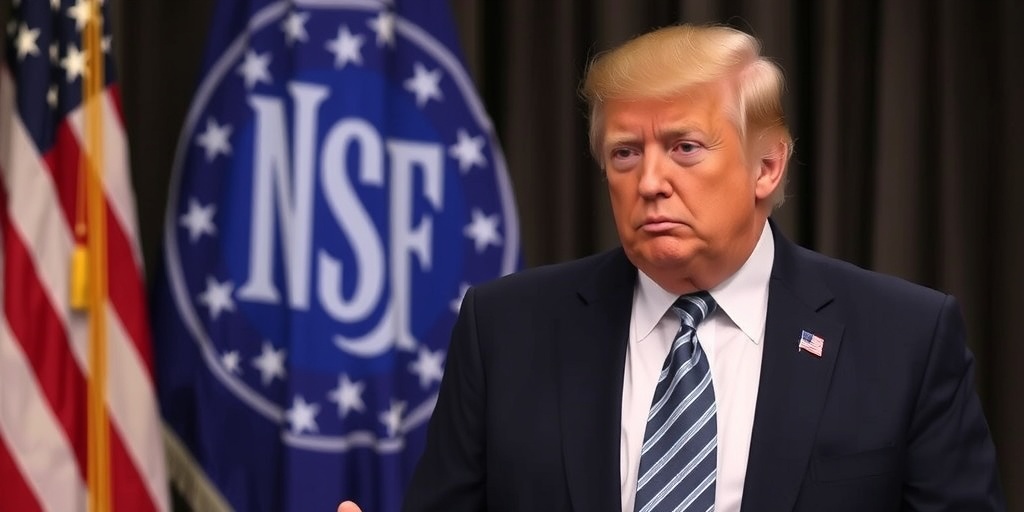Now Reading: Trump Might Appoint Pardoned Woman as ‘Pardon Czar’
-
01
Trump Might Appoint Pardoned Woman as ‘Pardon Czar’
Trump Might Appoint Pardoned Woman as ‘Pardon Czar’

Alice Marie Johnson Under Consideration for "Pardon Czar" Position in Trump Administration
President Donald Trump’s administration is reportedly considering Alice Marie Johnson for the newly proposed role of "pardon czar," a position that may involve championing clemency for individuals seeking relief from their sentences. Johnson, who gained national attention after her life sentence for a nonviolent drug conviction was commuted by Trump during his first term, has expressed a desire to continue advocating for prisoners who deserve clemency.
Although discussions around Johnson’s potential appointment are ongoing and have not been finalized, her interest in supporting those impacted by the justice system aligns with Trump’s checkered history of criminal justice reform. Johnson, who previously revealed her commitment to gaining relief for others, has not commented on her appointment when reached by phone, and a White House representative was unavailable for comment.
Alice Marie Johnson’s journey became widely known when reality television star Kim Kardashian highlighted her case, drawing attention to the issues surrounding harsh sentencing laws. Originally serving a life sentence plus 25 years in prison since 1996 for her role in a drug conspiracy, Johnson’s case became emblematic of the broader conversations about racial disparities and the impact of mandatory minimum sentencing. Following a meeting arranged by Trump’s son-in-law, Jared Kushner, Kardashian lobbied for Johnson’s release, leading to Trump commuting her sentence just one week later. Subsequently, in 2020, the president granted her a full pardon, effectively erasing her conviction.
Despite this tangible change in Johnson’s situation, her assumed role as a "pardon czar" surfaces contradictions in Trump’s approach to criminal justice reform. During his first term, he signed the bipartisan First Step Act—a significant piece of legislation aimed at reducing prison sentences for certain nonviolent drug offenses—only to later express regret over the decision to his advisers. As he gears up for a 2024 campaign, Trump’s rhetoric has shifted sharply; he has called for extreme measures against crime, including shooting thieves in drugstores and enforcing the death penalty for drug traffickers.
The paradox of empowering Johnson as a "pardon czar" is apparent when considering the political landscape surrounding criminal justice reform. Johnson’s case shines a light on the harsh realities faced by many nonviolent offenders, particularly women and minorities. Harsh sentencing and the resulting collateral consequences are issues that reform advocates have long lobbied against. Johnson herself became a symbol of this fight while serving her sentence, advocating for her prison peers and participating in various rehabilitation programs, which makes her potential new role both poignant and politically significant.
The First Step Act, one of the administration’s most notable legislative achievements, aimed to reshape the lives of many individuals in the penal system. It expanded early-release opportunities and provided resources for anti-recidivism programs. Following its enactment, thousands of individuals were released from federal prisons, demonstrating a significant shift in policy that impacted the lives of many. Johnson was one of those success stories, having submitted over 100 clemency petitions to the White House after her release—a project directly encouraged by Trump.
In a November 2024 television interview, Johnson reflected on her post-release advocacy efforts and emphasized her commitment to continue working on behalf of those still incarcerated. “I’m so blessed to be free myself,” she stated. “The work continues. I can’t help but advocate for people who are incarcerated, because I’m really one of them. I’m just a free one of them.”
While initial discussions about Johnson’s possible appointment as "pardon czar" seem promising, the unpredictable nature of Trump’s presidency remains a factor. Changes in plans or shifts in focus can occur rapidly within the administration, leaving many to speculate about the true impact this position could have on future clemency decisions and criminal justice reform initiatives.
Overall, Johnson’s potential role could signify a new chapter in clemency advocacy within the Trump administration, especially as the nation continues to grapple with the implications of its criminal justice policies. Though the role of "pardon czar" remains undefined, if appointed, Johnson’s personal journey and advocacy could help shape the conversation on criminal justice reform in the coming years.
Stay Informed With the Latest & Most Important News
Previous Post
Next Post
Previous Post
Next Post
-
 01New technology breakthrough has everyone talking right now
01New technology breakthrough has everyone talking right now -
 02Unbelievable life hack everyone needs to try today
02Unbelievable life hack everyone needs to try today -
 03Fascinating discovery found buried deep beneath the ocean
03Fascinating discovery found buried deep beneath the ocean -
 04Man invents genius device that solves everyday problems
04Man invents genius device that solves everyday problems -
 05Shocking discovery that changes what we know forever
05Shocking discovery that changes what we know forever -
 06Internet goes wild over celebrity’s unexpected fashion choice
06Internet goes wild over celebrity’s unexpected fashion choice -
 07Rare animal sighting stuns scientists and wildlife lovers
07Rare animal sighting stuns scientists and wildlife lovers





















